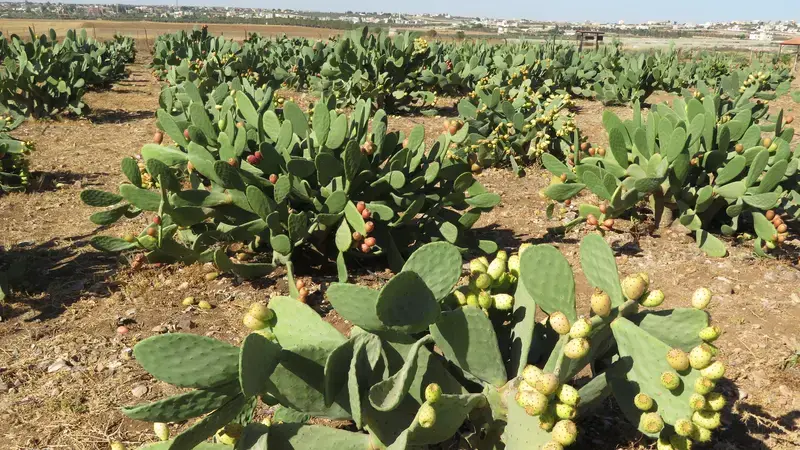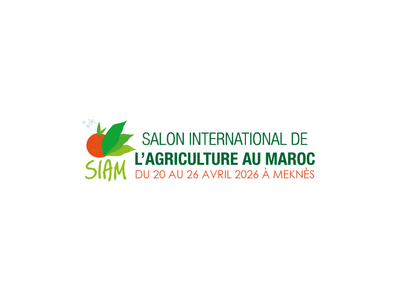Cactus Pear Evaluation & Best-Agronomic Practices

13-19 July 2019. Amman – Jordan. Cactus crops are gaining increasing interest across the globe, in particular cactus pear (Opuntia ficus indica), because of its unique characteristics, which provide resilience to climate change impact and population pressures.
ICARDA organized an International Workshop in cooperation with the National Agricultural Research Center (NARC) of Jordan on "Evaluating Cactus Plants and Best Agricultural Practices" as part of wider measures to address the scarcity of water resources and the impacts of climate change. The course topics included lectures on the environmental requirements of cactus and agricultural treatments, and methods of evaluating and characterizing different cactus varieties. The experiences of cactus cultivation in the participating countries were presented and discussed. One session was related to the process of selecting cactus resistant to pests and diseases, and tolerant of salinity, drought and extreme temperatures. Another session allowed participants to learn about the Jordanian experience to mitigate drought in targeted areas.
Cactus pear can grow on land where no other crops are able to grow; and it can be used to restore degraded land. In addition to its resilience as a crop, cactus pear is also increasingly appreciated for its multiple purposes. The fruit and young cladodes can be consumed by humans, and there is growing interest in its use as animal fodder. In collaboration with NARC, ICARDA has established a cactus germplasm at Mushaqqar research station.
Cactus germplasm at Mushaqqar station
The field genebank is used to evaluate the adaptability of various cactus accessions to the conditions of West Asia. It is also used as a training venue and a platform to increase awareness about the importance of cactus pear, and how it should be cultivated (best agronomic practices).
Currently, more than 120 cactus accessions imported from different countries (Italy, USA, Brazil, Tunisia, South Africa, Mexico, Morocco, etc.) have been established at Mushaqqar Research Station. These accessions have different genetic characteristics in terms of productivity, specifications, and purpose of use. The cactus field genebank is now serving as a source of genetic material that can be easily accessed and promoted to other countries. It is used to raise awareness and conduct field days and host visitors interested in this crop.
Further references
News websites: 22/07 Enjaznews ; 14/07 Malf news ; 22/07 Noor Jordan news ; 14/07 Jebal Alblaqaa news ; 14/07 Alrai ; 22/07 Al Mrfa’a News ; Shbeb news ; 14/07 Al Raad news ; 14/07 Ammon news ; 14/07 Al Anbat news ; Ouion Facebook page: Free sound Facebook page ; 22/07 Jordan news agency
Closing ceremony: 20/07 Al Raad news ; Al Difteen news ; Ouion Facebook page ; Nabd Al Share’e ; Ammon news ; Alkawn news Facebook page ; Jebal Alblaqaa news: Alrai ; Al Mrfa’a News ; Noor Jordan news: Madar Alsaaa news ; Petra news ; Shbeb news
For more information, please contact Mounir Louhaichi - Range Ecology and Management Research Scientist at ICARDA, [email protected]
Resource:
Crop Ecology, Cultivation and Uses of Cactus Pear
Paperback: 244 pages ; FAO, January 2018
The Arabic translation will shortly be launched in Egypt
Climate change is one of the biggest challenges the world must meet today and in the future. Prolonged droughts and desertification are among the issues faced by many countries, especially in Africa and Asia, where the rural poor and smallholder farmers are most heavily affected. If people are to survive in these ever harsher conditions, their crops need to withstand drought, high temperatures and poor soils. Cactus crops are gaining increasing interest across the globe, in particular cactus pear (Opuntia ficus− indica), because of its unique characteristics, which provide resilience to the above mentioned harsh conditions.
Cactus pear is able to grow on land where no other crops are able to grow; it can be used to restore degraded land and in many countries, such as Ethiopia, it is the only crop that can be relied on when everything else fails. The crop originates in Mexico – still the largest producing and consuming country in the world – but other countries, including Morocco, Ethiopia, South Africa, Kenya, India and Pakistan, are increasing their production and use.
Related:








